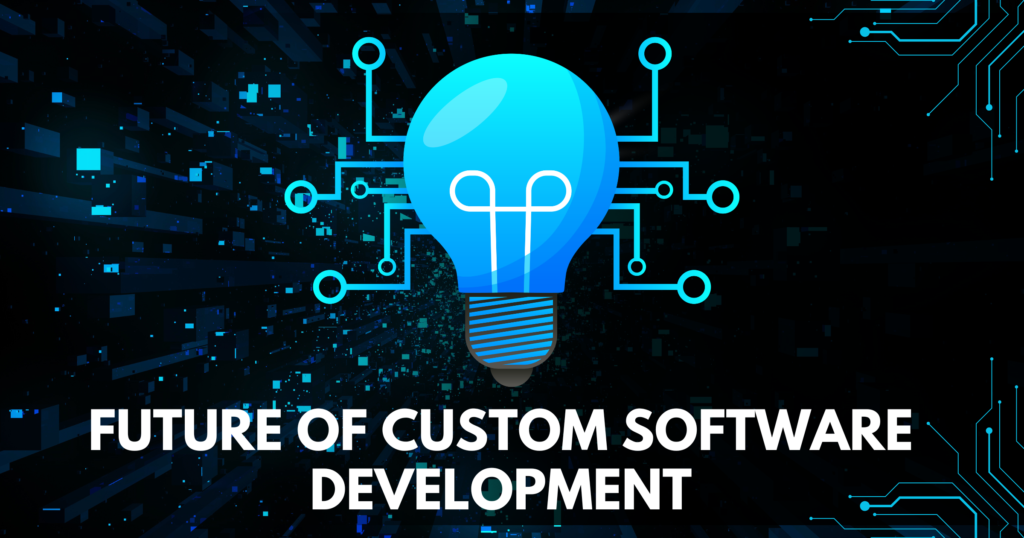
Custom software development has always been at the heart of technological innovation, helping businesses optimize operations, enhance user experiences, and gain a competitive edge. As we step into 2025, the industry is witnessing rapid transformations fueled by AI, cloud computing, blockchain, and emerging technologies like quantum computing.
In this article, we’ll explore the key trends and technologies shaping custom software development in 2025 and how businesses can leverage them to stay ahead.
The Evolution of Custom Software Development
Over the last decade, software development has evolved from traditional monolithic architectures to cloud-native, API-first, and AI-powered solutions. Businesses are no longer just seeking software; they want scalable, secure, and future-proof applications. The rise of low-code platforms, DevSecOps, and AI-driven automation has also reshaped the way software is designed and deployed.
As we enter 2025, here are the key trends and technologies driving the future of custom software development.
Key Trends in Custom Software Development in 2025
1. AI and Machine Learning Integration
Artificial Intelligence (AI) and Machine Learning (ML) have moved beyond simple automation. In 2025, AI is an integral part of the development process itself.
✅ AI-driven code generation – Tools like GitHub Copilot and OpenAI Codex help developers write, debug, and optimize code faster.
✅ Predictive analytics – AI-powered insights help businesses anticipate user behavior and make data-driven decisions.
✅ AI for DevOps (AIOps) – Automated monitoring, anomaly detection, and incident response.
Impact: AI enhances productivity, reduces human error, and speeds up the development cycle.
2. Low-Code and No-Code Development
Low-code and no-code platforms continue to empower citizen developers and businesses, reducing reliance on full-stack engineers.
✔ Faster application development with drag-and-drop interfaces.
✔ Cost-effective solutions for startups and SMEs.
✔ Integration with AI, making these platforms smarter and more capable.
Impact: Democratizes software development, enabling non-programmers to build applications.
3. Cloud-Native Development and Serverless Computing
Cloud-native development is now the gold standard for software deployment.
💡 Microservices architecture enables scalability and flexibility.
💡 Serverless computing (AWS Lambda, Azure Functions, Google Cloud Functions) eliminates the need for server management.
💡 Hybrid and multi-cloud strategies ensure resilience and performance.
Impact: Cost savings, seamless scalability, and improved efficiency.
4. Edge Computing and IoT-Driven Development
With IoT (Internet of Things) adoption skyrocketing, edge computing has become a necessity.
🛠 Processing data closer to the source reduces latency and enhances real-time decision-making.
🌍 Applications in smart cities, healthcare, industrial automation, and autonomous vehicles.
🔒 Security advancements to protect IoT devices from cyber threats.
Impact: Enables real-time processing and improves performance for connected devices.
5. Blockchain for Security and Transparency
Blockchain technology is revolutionizing finance, supply chain, healthcare, and identity verification.
🔐 Decentralized applications (dApps) for transparency and security.
💰 Smart contracts for automated, trustless transactions.
🛡 Enhanced cybersecurity by reducing vulnerabilities in traditional centralized systems.
Impact: Improved security, reduced fraud, and faster transactions.
6. Quantum Computing’s Early Influence
Quantum computing is still in its infancy, but its impact on software development is undeniable.
🚀 Quantum algorithms will eventually solve complex problems faster than classical computers.
🔐 Enhanced cybersecurity with quantum-resistant encryption.
💻 Potential breakthroughs in AI, materials science, and financial modeling.
Impact: While mass adoption is years away, businesses should stay prepared for its transformative potential.
7. Cybersecurity-First Approach
With cyber threats growing more sophisticated, security-first development is now mandatory.
🛡 Zero-trust security models to verify every request.
🔍 AI-driven threat detection for real-time security analysis.
📜 Strict compliance regulations (GDPR, CCPA, ISO 27001).
Impact: Reduces security risks and ensures regulatory compliance.
Emerging Technologies Shaping Custom Software Development
1. 5G-Powered Applications
With 5G connectivity, software can process data faster than ever.
📲 Enhanced mobile and IoT applications.
🎮 Real-time AR/VR streaming.
🌐 Faster cloud access and remote work capabilities.
Impact: High-speed connectivity opens new doors for innovative software solutions.
2. Augmented Reality (AR) and Virtual Reality (VR)
AR and VR are redefining e-commerce, gaming, healthcare, and education.
🛍 Virtual shopping experiences for retail.
🩺 Remote healthcare and surgical simulations.
🎓 Immersive learning in education and corporate training.
Impact: Custom software solutions will integrate AI, AR, and VR to create engaging experiences.
3. API-Driven Development
Modern software is built using API-first architecture.
🔗 Seamless integration with third-party services (e.g., payment gateways, CRMs).
🚀 Faster time to market by leveraging existing APIs.
📡 Microservices communication through APIs for modular applications.
Impact: Enhances flexibility, scalability, and efficiency.
4. DevSecOps and Automated Testing
Security and automation are now integral to DevOps.
🤖 AI-driven test automation improves software quality.
🔒 Shift-left security approach ensures vulnerabilities are addressed early.
📊 Continuous integration and deployment (CI/CD) pipelines streamline development.
Impact: Ensures faster releases without compromising security.
The Business Impact of These Trends
By adopting these trends, businesses can:
✔ Reduce time-to-market with automation and low-code solutions.
✔ Enhance security and compliance to avoid costly breaches.
✔ Improve scalability with cloud-native and microservices architecture.
✔ Gain a competitive edge by leveraging AI, blockchain, and emerging tech.
Conclusion
The future of custom software development in 2025 is exciting, with innovations in AI, blockchain, cloud computing, quantum computing, and cybersecurity shaping the industry. Businesses that adapt and innovate will stay ahead of the curve.
As we look beyond 2025, automation, decentralization, and human-AI collaboration will define the next phase of software evolution. Now is the time to embrace the change and build future-ready solutions!






